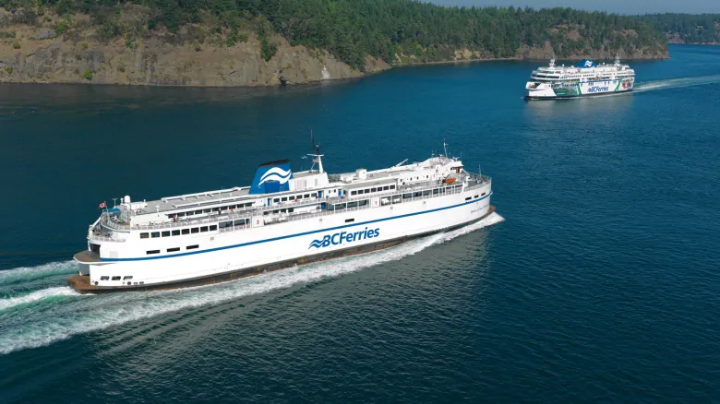
‘The foremost priority has to be that this is safe,’ says union
The union responsible for representing marine and ferry workers says it wasn’t properly consulted about BC Ferries’ decision to serve beer and wine on certain sailings as part of a pilot this summer.
Graeme Johnston, provincial president of BC Ferry and Marine Workers’ Union, says the union was notified of the intention to serve alcohol on board but never consulted.
“This is pretty important for us because it allows us to give the feedback that we think is really important to ensure not just the safety of the general public but the safety of the workers,” said Johnston.
He added the people who work on the ships every day are the ones who would “provide the best feedback about what’s required to make implementing something like this safe.”
BC Ferries announced Wednesday it would serve beer and wine on three ships travelling between Tsawwassen, south of Vancouver, and Swartz Bay on Vancouver Island.
As part of the pilot, beer and wine can only be purchased with a meal, with a maximum of two drinks per passenger. Sales will only start after 11 a.m. and passengers will only be able to buy drinks inside the Pacific Buffet.

Aside from the meeting where the union was informed of the intention to serve alcohol, Johnston says there has been no contact.
During that meeting, the union requested a risk assessment. He says BC Ferries is in the process of conducting one, but the union hasn’t been asked to participate.
Union not opposed to sale of alcohol, just implementation
Johnston is concerned because BC Ferries staff already have to deal with difficult passengers regularly and “pouring alcohol onto the problem is only going to make it worse.”
On the Tsawassen to Swartz Bay route, he says staff interact with intoxicated passengers, who sneak alcohol onto the ferry, multiple times per day.

The union isn’t against the sale of alcohol, says Johnston, but it wants it implemented in the right way.
“We want to see the company succeed. We want to see good revenue streams for BC Ferries, but the foremost priority has to be that this is safe,” he said.
“If it’s not safe then there’s no way it should be going forward.”
At a minimum, Johnston says someone on the ship needs to be designated to oversee alcohol service. This person would be responsible for monitoring the flow of alcohol and how much is being consumed.
Without this, Johnston says it would be too easy to inadvertently overserve a passenger.


